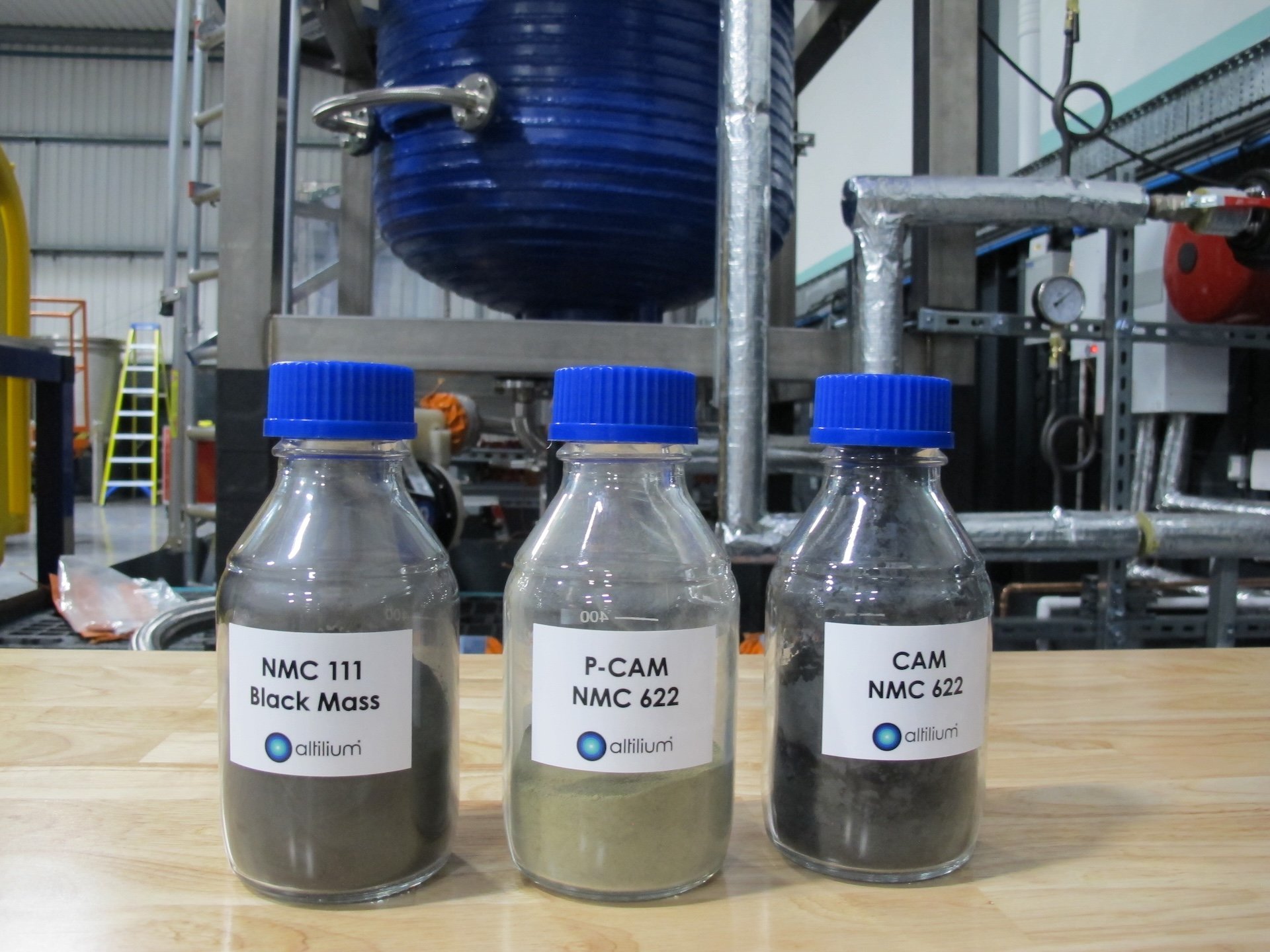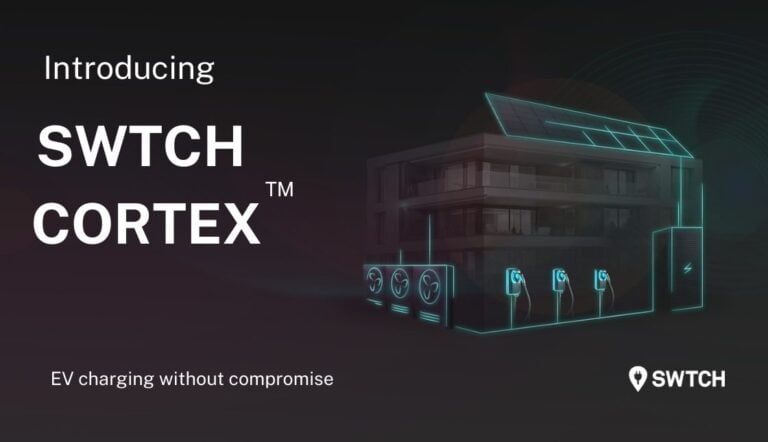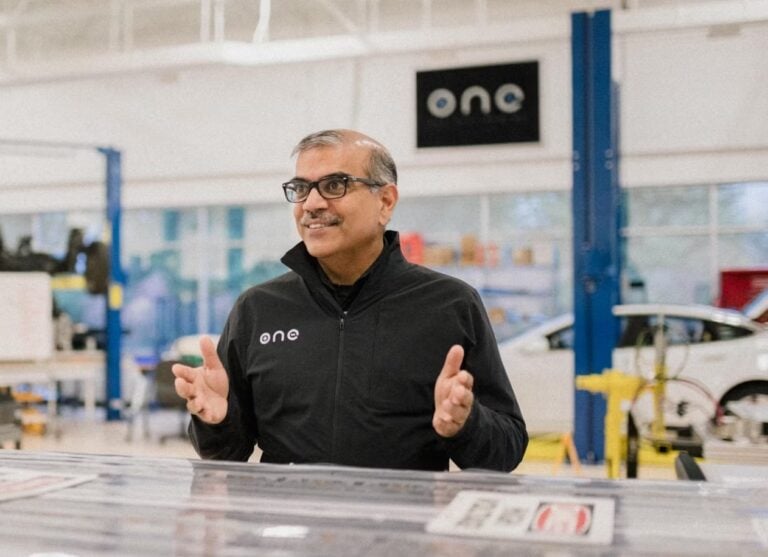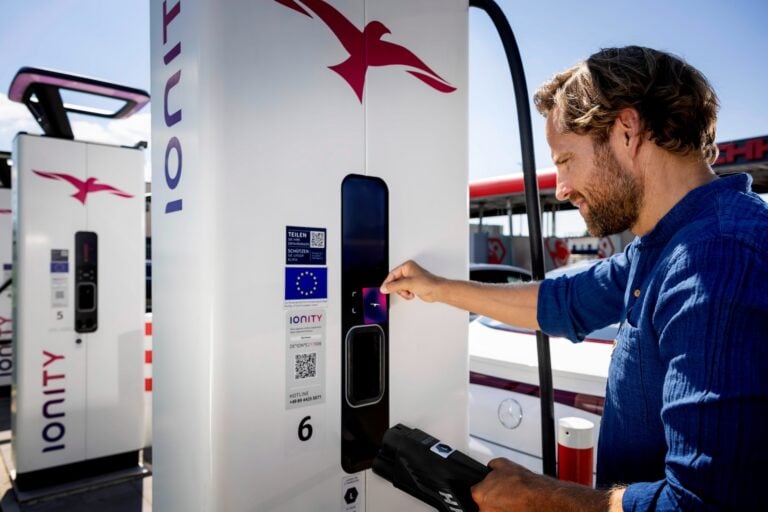Sign up for our popular daily email to catch all the latest EV news!
Altilium, a UK-based clean technology company focused on the transition to net zero, announced a major breakthrough in developing the UK’s only domestic supply of sustainable, low-carbon battery materials. The company confirmed that its recycled cathode active materials (CAM) now match the performance of commercially available materials, marking a significant milestone in creating a sustainable supply chain for electric vehicle (EV) batteries in the UK.
Key Highlights:
- Recycled CAM Performance: Altilium’s recycled CAM shows comparable rate and cycle performance to commercially available CAM, demonstrating equivalency in quality and reliability.
- Electrochemical and XRD Analysis: Electrochemical testing and X-ray diffraction (XRD) analysis confirm that Altilium’s CAM is indistinguishable from commercial versions.
- EcoCathode™ Process: The company’s proprietary EcoCathode™ process recovers over 95% of critical metals like lithium from spent batteries.
- UK Manufacturing Gap: Altilium addresses the lack of domestic CAM production, crucial for the future of the UK automotive sector as it transitions to EVs.
- Environmental Impact: The production process reduces greenhouse gas emissions by up to 74% compared to traditional methods.
Recycling old EV batteries and production scrap plays a significant role in alleviating raw material shortages and reducing the environmental impact of battery production. While there has been limited evidence until now that recycled materials could match the performance of commercial CAM, Altilium’s recent breakthrough changes that narrative. Electrochemical testing at Altilium’s ACT1 facility in Devon showed that their recycled CAM had a cycle cell capacity of 193 mAh.g⁻¹, closely aligning with the 190-194 mAh.g⁻¹ range typical for commercial CAM. Additionally, XRD analysis confirmed the material’s structure remained indistinguishable from commercially sourced CAM.
Battery cycle testing, an essential step in battery development, repeatedly charges and discharges cells to verify material reliability and lifespan. The test results confirm that Altilium’s recycled CAM meets the performance standards of today’s high-nickel NMC 811 batteries, demonstrating that recycled CAM can provide quality, reliability, and sustainability without compromises.
Dr. Christian Marston, Altilium’s co-founder and COO, stated, “With these results, Altilium has shown recycled battery metals can perform as well as virgin metals and that critical minerals are essentially the same whether they come from a mine or an old EV battery. Our recycled CAM not only matches but can even exceed the performance of traditional materials. We have shown there is no need to compromise on performance, with the additional sustainability benefits of using recycled materials.”
The CAM production was part of a collaborative research project backed by the Advanced Propulsion Centre (APC23). Altilium is currently the only UK-based company producing CAM from recycled materials for new EV batteries. The company’s EcoCathode™ process recovers over 95% of critical metals from spent batteries, including lithium, before upcycling and re-engineering them to create modern battery materials.
CAM is a crucial component of an EV battery, directly influencing safety, durability, and driving range. Nearly all CAM worldwide is produced in Asia, leaving the UK without domestic production capacity. Developing this capacity is vital for the future of the UK automotive sector, which is projected to need 153,000 tonnes of CAM annually by 2035 to produce over one million EVs each year.
Altilium is working closely with the UK Battery Industrialisation Centre (UKBIC) to produce battery cells with its recycled CAM, validating the materials with a leading automotive OEM. By scaling up domestic CAM production, Altilium aims to support the development of a circular economy for battery materials, making the EV industry more sustainable.
The Altilium EcoCathode™ process is also more efficient and eco-friendly than traditional cathode manufacturing methods. A recent lifecycle analysis indicated that CAM produced with Altilium’s process could reduce greenhouse gas emissions by up to 74%, compared to sourcing primary raw materials from a Chinese supply chain.
Altilium continues to grow with support from UK government innovation awards, including grants from the Faraday Battery Challenge and the Automotive Transformation Fund. The company’s Series A funding round was successfully completed with a multi-million-pound investment from SQM Lithium Ventures, the corporate venture arm of Sociedad Química y Minera de Chile (SQM), one of the world’s top lithium producers.
For more information, visit www.altilium.tech.
Sign up for our popular daily email to catch all the latest EV news!








